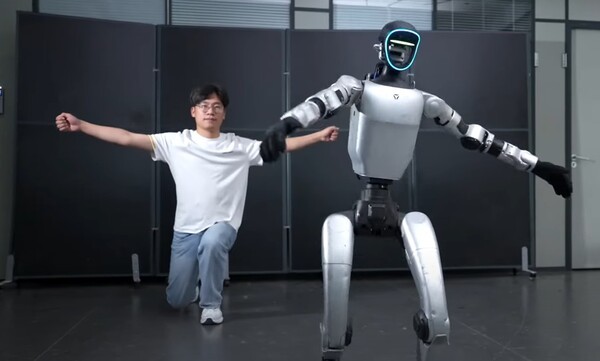China has become the first country to deploy a humanoid robot on industrial production lines that can learn new functions within just 10 minutes. This marks the first real-world application of reinforcement learning technology—allowing robots to learn and evolve autonomously in real time.

AgiBot commercializes “Embedded Intelligence Reinforcement Learning”
According to China’s state broadcaster CCTV, the Shanghai-based company AgiBot has introduced “Embedded Intelligence Reinforcement Learning” technology to its industrial robots.
This innovation enables robots to learn new tasks directly in real-world environments—without relying on centralized servers or external training facilities. Traditionally, robots required weeks or even months of training to master new functions. AgiBot’s system dramatically reduces both training time and cost.
“Robots are entering the stage of self-evolution”
An AgiBot spokesperson stated, “Even in industrial processes requiring millimeter-level precision and complex collaboration, robots are now moving beyond repetitive automation toward autonomous evolution.”
This milestone indicates that robots are no longer just following programmed instructions—they can now analyze data on-site, make their own judgments, and optimize task performance through experience.
Integrating large language models for human-like interaction
AgiBot also integrated an end-to-end large language model (LLM) into its learning engine. In the past, operators had to manually input command codes. Now, the language model acts as a real-time interpreter between robots and industrial systems, enabling robots to understand complex workflows through natural speech or text commands. This integration significantly boosts production efficiency while cutting operational costs.
China eyes a $400 billion global robot market
According to the China Academy of Electronics and Information Technology, the global robotics market is projected to exceed $400 billion (approximately KRW 576 trillion) by 2029.
The Chinese government has designated robotics as a “core pillar of manufacturing innovation” and continues to expand policy and financial support for domestic AI and robotics companies.
Tech Insider Columnist | tlswnqor@naver.com
- [Tech Column] In the Post-Nuclear Era, Korea’s AI Survival Strategy Hinges on Power Supply
- Xpeng to Launch Self-Developed AI-Chip Robotaxi Next Year: “Ahead of Tesla”
- China’s Unitree Unveils 180cm Humanoid Robot “H2,” Shaking Up the Market
- The Era of Robot Parking: Kakao Mobility and Hyundai Wia Make It Real
- DeepSeek’s ‘Genius Developer’ Luo Fuli Chooses Xiaomi After All
- Figure AI Faces Lawsuit After Former Safety Chief Claims He Was Fired for Warning About Robot Risks

![[동학] 카카오톡 친구탭, 결국 12월 롤백… “격자형 피드는 선택 옵션으로”](https://cdn.kmjournal.net/news/thumbnail/custom/20251126/5517_10550_1119_1763853080_120.jpg)


![[테크 칼럼] 제미나이3, GPT-5.1을 넘다…AI는 이제 ‘일을 대신하는 시대’로 간다](https://cdn.kmjournal.net/news/thumbnail/custom/20251126/5457_10454_4847_1763621329_120.jpg)





